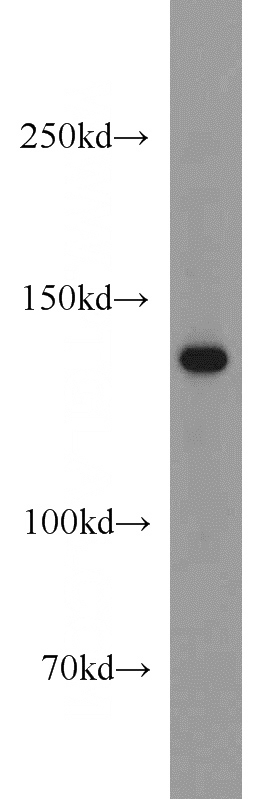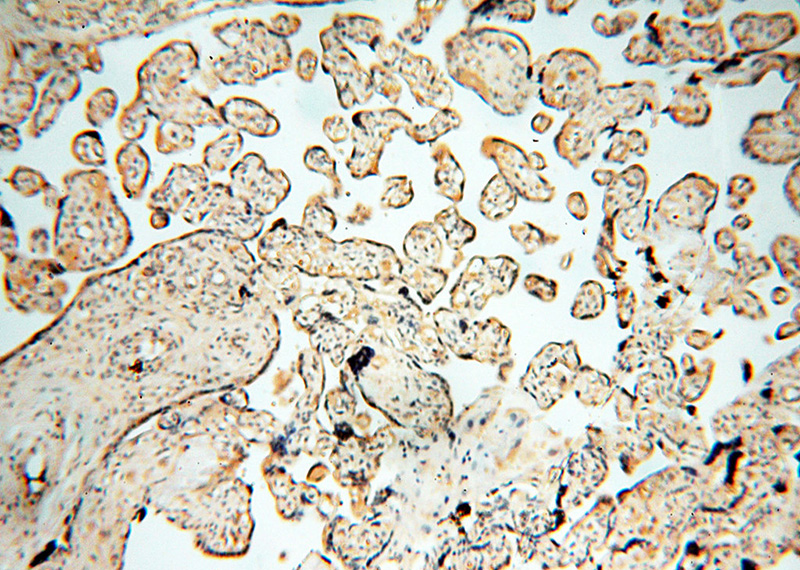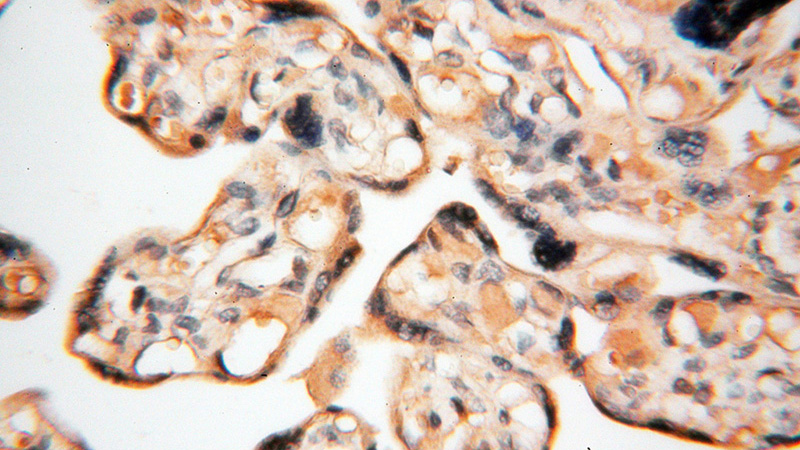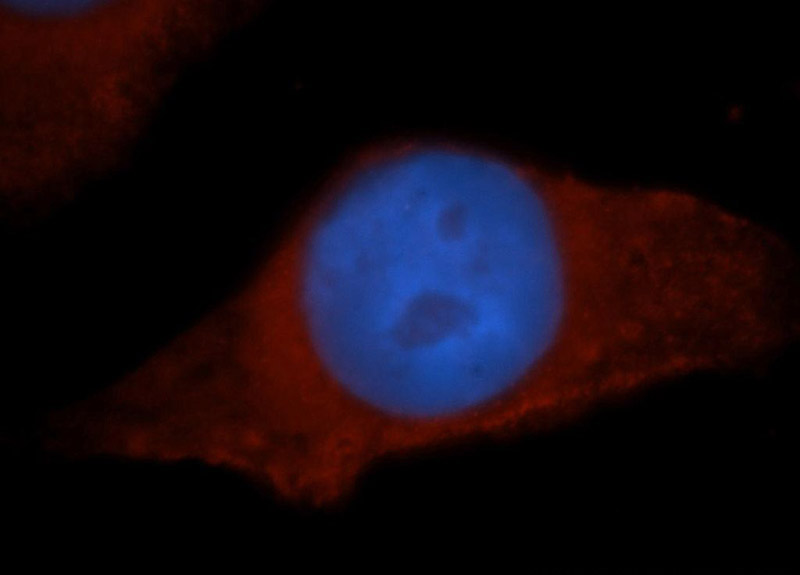-
Product Name
HPS5 antibody
- Documents
-
Description
HPS5 Rabbit Polyclonal antibody. Positive WB detected in mouse liver tissue, mouse spleen tissue. Positive IHC detected in human placenta tissue, human heart tissue, human lung tissue, human skin tissue. Positive IF detected in MCF-7 cells. Observed molecular weight by Western-blot: 135-141 kDa
-
Tested applications
ELISA, WB, IHC, IF
-
Species reactivity
Human,Mouse,Rat; other species not tested.
-
Alternative names
AIBP63 antibody; Hermansky Pudlak syndrome 5 antibody; HPS5 antibody; KIAA1017 antibody; Ru2 antibody; Ruby eye protein 2 homolog antibody
- Immunogen
-
Isotype
Rabbit IgG
-
Preparation
This antibody was obtained by immunization of HPS5 recombinant protein (Accession Number: NM_181508). Purification method: Antigen affinity purified.
-
Clonality
Polyclonal
-
Formulation
PBS with 0.02% sodium azide and 50% glycerol pH 7.3.
-
Storage instructions
Store at -20℃. DO NOT ALIQUOT
-
Applications
Recommended Dilution:
WB: 1:500-1:5000
IHC: 1:20-1:200
IF: 1:20-1:200
-
Validations

mouse liver tissue were subjected to SDS PAGE followed by western blot with Catalog No:111454(HPS5 antibody) at dilution of 1:1000

Immunohistochemical of paraffin-embedded human placenta using Catalog No:111454(HPS5 antibody) at dilution of 1:100 (under 10x lens)

Immunohistochemical of paraffin-embedded human placenta using Catalog No:111454(HPS5 antibody) at dilution of 1:100 (under 40x lens)

Immunofluorescent analysis of MCF-7 cells, using HPS5 antibody Catalog No:111454 at 1:50 dilution and Rhodamine-labeled goat anti-rabbit IgG (red). Blue pseudocolor = DAPI (fluorescent DNA dye).
-
Background
Hermansky-Pudlak syndrome 5 protein (HPS-5), also named Ruby-eye protien 2 homolog (Ru2), plays a role in organelle biogenesis associated with melanosomes, platelet dense granules, and lysosomes. This protein interacts with Hermansky-Pudlak syndrome 6 protein and may interact with the cytoplasmic domain of integrin, alpha-3. Mutations in this gene are associated with Hermansky-Pudlak syndrome type 5.
-
References
- Cullinane AR, Curry JA, Carmona-Rivera C. A BLOC-1 mutation screen reveals that PLDN is mutated in Hermansky-Pudlak Syndrome type 9. American journal of human genetics. 88(6):778-87. 2011.
- Carmona-Rivera C, Golas G, Hess RA. Clinical, molecular, and cellular features of non-Puerto Rican Hermansky-Pudlak syndrome patients of Hispanic descent. The Journal of investigative dermatology. 131(12):2394-400. 2011.
- Cullinane AR, Curry JA, Golas G. A BLOC-1 mutation screen reveals a novel BLOC1S3 mutation in Hermansky-Pudlak Syndrome type 8. Pigment cell & melanoma research. 25(5):584-91. 2012.
Related Products / Services
Please note: All products are "FOR RESEARCH USE ONLY AND ARE NOT INTENDED FOR DIAGNOSTIC OR THERAPEUTIC USE"
